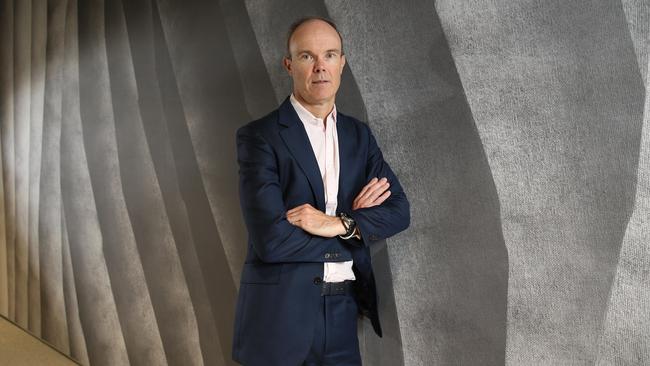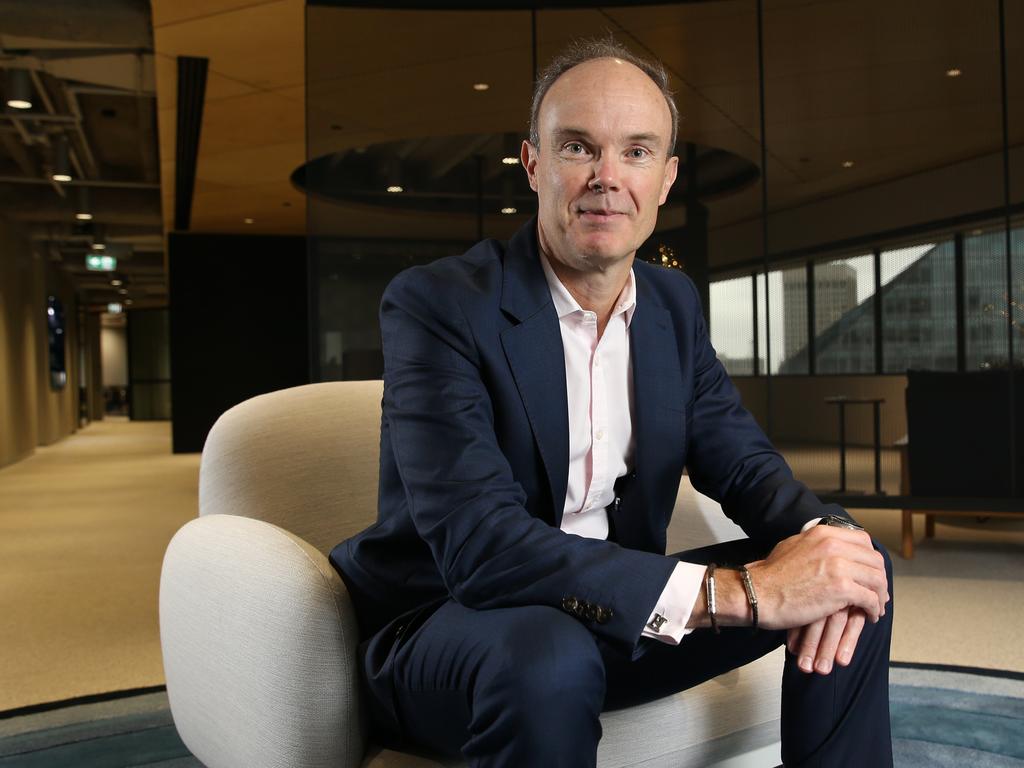Hamish Douglass buys into Netflix as Magellan bets on a streaming future
The billionaire fund manager believes free-to-air TV may “cease to exist” in 5-10 years as streaming platforms take over.

It looks like Hamish Douglass is going long on Netflix.
Documents lodged late last week with the Securities & Exchange Commission in the US show one the investment companies connected with his Magellan funds management business has taken a position in the global streaming giant.
Douglass, the billionaire co-founder of Magellan and a member of The List — Australia’s Richest 250, has in recent months hinted that he is keen to invest in one of the big streaming companies.
A quarterly report filed by institutional manager Magellan Financial Asset Management with the SEC shows the new Netflix holding, alongside perennial positions in other global companies Douglass is a big admirer of, including Alphabet, Alibaba, McDonald’s and Starbucks.
Douglass hinted at the new position in a recent Livewire Markets seminar, telling investors that he believed online streaming was a long-term trend that had only been accelerated during the COVID-19 pandemic, which has seen the likes of Netflix, Disney+, Amazon Prime and other companies rapidly increase their subscriber numbers.
“This isn’t just a business in 10 years, it is a 30-year play,” Douglass said in a discussion about Netflix. “This is a long-term investment but this is going to be one of the dominant entertainment platform that will be producing enormous cashflows and growing for 30 years.”
In the discussion, Douglass predicted the demise of traditional free-to-air television broadcasters and pay-TV companies “within five to 10 years” and said all their audiences would migrate to the global streaming platforms.
“The global entertainment business is enormous and it is going to fall into the hands of, I would guess, four global players, with a few of them being dominant,” he said, listing Netflix, Disney+, Amazon Prime and AppleTV as the main contenders.
He then outlined how huge Netflix could become and why it would be a compelling investment proposition.
“Netflix at the moment has just under 200 million global subscribers to its business. It is growing at 20 to 30 million subscribers per year, so it is foreseeable that in 10 years it is going to have 400 million-plus subscribers around the world. That is an incredible subscriber base.
“If they get their annual or monthly subscription to $US15-$US20 per month ... that is a $US70bn-$US100bn revenue business and maybe they get to $US50bn in content costs plus the technology and the hosting costs and marketing costs — that is a business earning $US20bn-$US50bn pre-tax per year. And it is probably going to still be growing double-digits per year if you take pricing and future subscriber growth into account.”
Douglass also enthusiastically described Netflix’s “massive advantage” because of the sheer scale of its spending on its own original content and the relatively cheap cost for subscribers.
“The content stays on the platform … and they own it.
“You can constantly be entertained so people won’t switch off and … it is very cheap. Remember, we used to spend $10 renting a video and now for $20 per month you can have 4 people in your house watching (Netflix) at the same time and it is almost insatiable, global, content.”
Netflix shares have increased by about 46 per cent this year.
Douglass is a billionaire in his own right thanks to his large stake in the ASX-listed Magellan and some of its offshoot funds. He and co-founder Chris Mackay formed Magellan in 2005 after previously working at Deutsche Bank together and an earlier stint at Schroders Australia. Magellan has outperformed its peers over a decade of investing in international equities.
Douglass has been a big believer in the Chinese consumer, and has bought stocks such as Starbucks — which he says still has huge growth potential in China — and McDonald’s as a result.
In a recent note to Magellan clients, Douglass noted the success of another of his stocks, Alphabet, in having Google morph from “a brand name to a verb … a rare feat achieved only by a product highly valued, widely used and dominant in its own category.”
Alphabet shares are up by more than 60 per cent since a COVID low in mid-March.
The biggest holding in the Magellan Global Equity Fund is Chinese giant Alibaba, followed by Microsoft and Tencent.








To join the conversation, please log in. Don't have an account? Register
Join the conversation, you are commenting as Logout